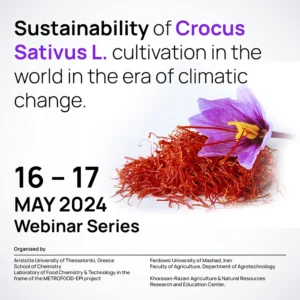Inhibition of Growth and Induction of Differentiation of Promyelocytic Leukemia (HL-60) by Carotenoids From Crocus Sativus L
Abstract
The effects of carotenoids of Crocus sativus L. (saffron) on cell proliferation and differentiation of HL-60 cells have been studied and compared with those of all-trans retinoic acid.
Our results demonstrated that the doses inducing 50% inhibition of cell growth were 0.12 microM for all-trans retinoic acid (ATRA) and for carotenoids of saffron 0.8 microM for dimethylcrocetin (DMCRT), 2 microM for crocetin CRT and 2 microM for crocins (CRCs).
At 5 microM, all these compounds induced differentiation of HL-60 cells, at 85% for ATRA, 70% for DMCRT, 50% for CRT and 48% for CRCs.
In these experiments, leukemic cells were cultured for 5 days in the absence or in the presence of up to 5 microM ATRA or seminatural and natural carotenoids.
Since retinoids have a potential application as chemopreventive agents in humans, their toxicity as an important limiting factor for their use in treatment should be extensively explored.
The seminatural (DMCRT and CRT) and natural carotenoids (CRCs) of Crocus sativus L. are not provitamin A precursors and could therefore be less toxic than retinoids, even at high doses.



